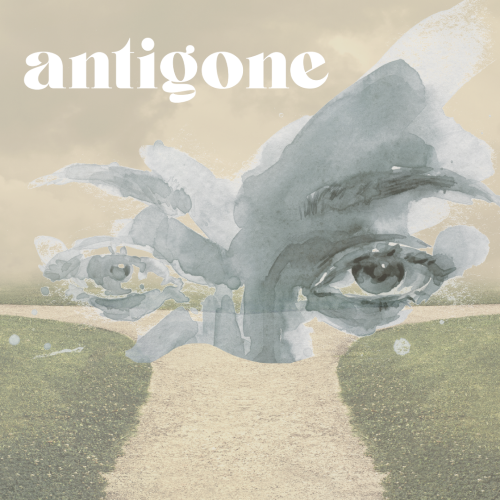“Antigone” in the Garden
BY JASMINA WELLINGHOFF, Editor —
Greek tragedies are powerful and eloquent but they deal with issues of loss, revenge, abuse of power, violent death, and other heavy-duty topics. So, our first question for director Kelly Roush who is directing the new Classic Theatre of San Antonio’s production of Sophocles’ “Antigone” was: Why not replace “Antigone” with lighter fare at this time when fun and laughter seem to be in short supply?

She explained that after COVID-19 disrupted the Classic’s plans for the season and the company decided to start performing outdoors, Greek plays fit into that format since the plays were originally performed in outdoor amphitheaters in ancient Greece. “And the play itself seemed even more relevant,” said Roush. “These two characters, Antigone and King Creon, deal with love and loss, and how you process grief. Neither one is all right or all wrong, but both have such strong convictions that they don’t have the ability to speak with each other. So, even though it’s not light, it feels very relevant.
“Tragedies often leave you exhilarated because someone has done something hard. These characters are trying hard to figure out how to bring their community together, and they have different ideas on how to do that, “explained the director. “And I have had numerous conversations even this past week on how hard the world still feels today, a year out from when the pandemic started. But we hope there will be light at the end of the tunnel.”
Those statements seem to echo in spirit Aristotle’s argument that tragedy cleanses the heart by purging us of our petty concerns and worries.

Sophocles wrote “Antigone” in 442 BC, in part as a criticism of absolute power some kings had back then. In the play, the war in the city of Thebes has come to an end and both of Antigone’s brothers, Eteocles and Polynices, have perished fighting each other over who was going to inherit the throne of their dead father. Following their deaths, their uncle Creon becomes king. He decrees that Eteocles was a loyal soldier who fought for his city, while Polynices was a traitor who doesn’t deserve to be buried or mourned. If somebody buries him, that person will pay with his/her life.
As a devoted sister, Antigone cannot accept Creon’s order and is determined to do what she feels is the right thing to do – bury her dead brother. Her sister Ismene, however, refuses to disobey the king’s rule and offend him. And the stage is set for more tragedy as neither Creon nor Antigone is willing to yield.
“They cannot find a place where they can be in conversation with each other, and it seems to me today there are people who love each other but are on different sides of issues and finding that place of compassion and conversation is very hard right now,” noted Roush.
“Antigone” will be performed outdoors in the San Antonio Botanical Garden, with Josey Porras in the title role, and John Boyd as Creon. All rehearsal take place in parks, often with passersby watching.
This is Roush’s first time to direct the famed play that she has loved since she was 15. “What resonated with me back then was this young woman speaking her truth to power, saying here’s where I stand, what I consider the right thing to do.”
For the current production, she chose Emily Mann’s adaptation of Sophocles’ play for a reason an adult who has gone through trials and tribulations can appreciate, namely that situations in life are not black and white. Different ideas and approaches can have value. “Today, I have more compassion for Creon,” she said.
Casting was a bit of a challenge since social distancing and other safety measures had to be observed. Consequently, the entire cast consists of eight people, seven of whom act as the chorus that comments on the action while also playing specific characters. In addition to the two actors mentioned above, the cast also includes Kacey Roye, Jon Manzke, Neil Redfield, Adam Ochoa, Gypsy Pantoja, and Marisa Varela.
“This play ends on a moment of hope for me as the sister, Ismene, gets to speak the last words to the community” said Roush.
Here’s how the play ends:
“Perhaps before the end of time/We will learn wisdom/And we will change,” says Antigone. And Ismene echoes that last statement: “And we will change.”
———————————————————————————————————————
Antigone opens April 8 and runs through April 25, Thursdays, Fridays and Sundays at 7:30 p.m.; San Antonio Botanical Garden, 555 Funston Place.; Bring you own chairs and blankets though chairs and masks will also be available for purchase. For tickets go to www.classictheatre.org. For info call 210-589-8450.
